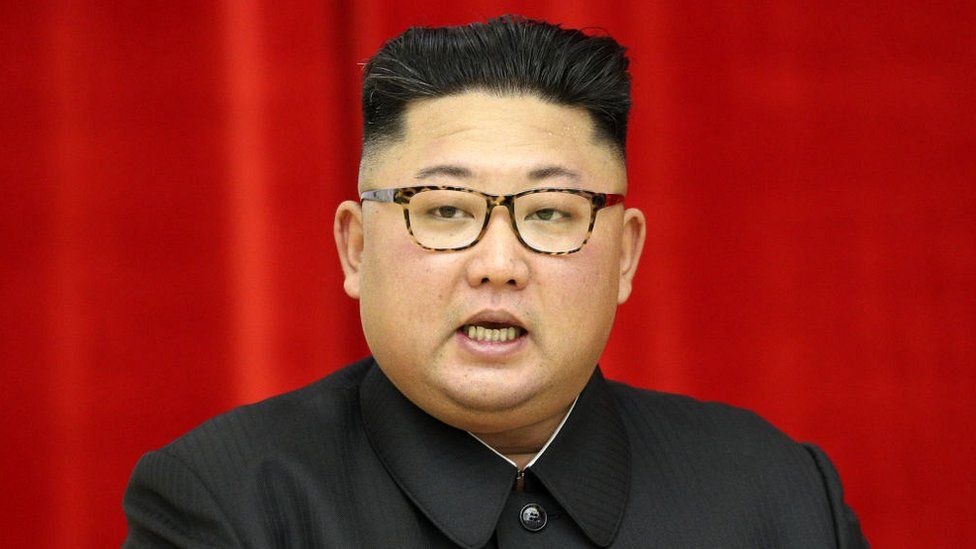Historical Background of North Korean Leadership

Leader of north korea – The Democratic People’s Republic of Korea (DPRK), commonly known as North Korea, has been ruled by a succession of leaders since its establishment in 1948. Each leader has shaped the country’s political landscape through their policies and actions, leaving a lasting impact on North Korea’s history.
The enigmatic leader of North Korea, Kim Jong-un, has always been a topic of fascination for the world. His unpredictable nature and nuclear ambitions keep nations on edge. But amidst the geopolitical tensions, let’s turn our attention to the upcoming match between Portugal and Slovenia.
As we eagerly anticipate the portugal vs slovenia prediction , we can’t help but wonder if Kim Jong-un will be following the game from his secluded palace in Pyongyang.
Timeline of North Korean Leaders
The following table provides a timeline of North Korean leaders, their years in power, major policies, and significant events during their tenure:
| Leader | Years in Power | Major Policies | Significant Events |
|---|---|---|---|
| Kim Il-sung | 1948-1994 | Juche (self-reliance), socialist economic planning, military buildup | Korean War, establishment of the DPRK, Great Leader Cult |
| Kim Jong-il | 1994-2011 | Songun (military-first) policy, nuclear weapons program, economic reforms | Arduous March, North Korean famine, Six-Party Talks |
| Kim Jong-un | 2011-Present | Byungjin (dual development of nuclear weapons and economy), economic liberalization, diplomatic overtures | Third Nuclear Test, Fourth Nuclear Test, inter-Korean summits, COVID-19 pandemic |
The Role of Kim Jong-un in North Korea
Kim Jong-un, the current leader of North Korea, ascended to power in 2011 after the death of his father, Kim Jong-il. His rise to power was marked by political maneuvering and the consolidation of his family’s grip on the country.
Leadership Style and Impact, Leader of north korea
Kim Jong-un’s leadership style is characterized by a mix of authoritarianism and isolationism. He has maintained a tight grip on power, purging potential rivals and consolidating his control over the military and the ruling Workers’ Party of Korea. Under his rule, North Korea has pursued a policy of self-reliance and has become increasingly isolated from the international community.
Personality and Decision-Making
Kim Jong-un is known for his unpredictable and impulsive behavior. He is believed to have a deep mistrust of outsiders and has been accused of human rights abuses. His decision-making process is often opaque, and he is said to rely heavily on a small circle of advisors.
Relationship with the Military
The military plays a crucial role in North Korea’s political system, and Kim Jong-un has made significant efforts to strengthen his ties with the armed forces. He has promoted military officers to key positions in the government and has increased the military’s budget. In turn, the military has pledged its loyalty to Kim and has played a key role in suppressing dissent and maintaining order.
Challenges and Prospects for North Korean Leadership: Leader Of North Korea

North Korea’s leadership faces a multitude of economic, social, and political challenges that hinder the country’s progress and stability. These challenges include:
- Economic stagnation: North Korea’s economy has been stagnant for decades, with little growth or development. The country relies heavily on foreign aid and is subject to international sanctions, which restrict its ability to trade and access global markets.
- Social inequality: North Korean society is highly stratified, with a small elite controlling the vast majority of the country’s wealth and resources. This inequality has led to widespread poverty and social unrest.
- Political repression: North Korea is one of the most repressive regimes in the world. The government tightly controls all aspects of life, including the media, the internet, and freedom of expression. This repression has stifled dissent and made it difficult for North Koreans to access information and connect with the outside world.
Despite these challenges, there are some potential scenarios for North Korea’s future, including:
- Regime change: The collapse of the North Korean regime is a possibility, although it is difficult to predict when or how it might occur. If the regime were to collapse, it could lead to a period of instability and uncertainty in North Korea and the region.
- Economic reforms: North Korea could implement economic reforms to open up its economy and attract foreign investment. This could lead to economic growth and improved living standards for North Koreans. However, it is unclear whether the North Korean government is willing or able to implement such reforms.
- Diplomatic breakthroughs: North Korea could engage in diplomatic negotiations with the United States, South Korea, and other countries to resolve its nuclear weapons program and other issues. This could lead to a reduction in tensions and a more stable relationship between North Korea and the rest of the world.
The role of external actors, such as China, the United States, and South Korea, will be critical in shaping the trajectory of North Korean leadership. China is North Korea’s main ally and provides the country with economic and political support. The United States and South Korea are North Korea’s main adversaries and have been involved in a long-standing conflict with the country. These countries will continue to play a major role in determining the future of North Korea and its leadership.
Kim Jong-un, the enigmatic leader of North Korea, remains an enigmatic figure in global politics. However, even in the midst of geopolitical tensions, the world of sports provides a brief respite. For those seeking an exciting distraction, the upcoming Brewers vs Rockies game promises a thrilling matchup.
Expert predictions here offer insights into the game’s potential outcome. Yet, as the game concludes and the dust settles, our attention inevitably returns to the enigmatic figure at the helm of North Korea, whose actions continue to shape the course of international relations.